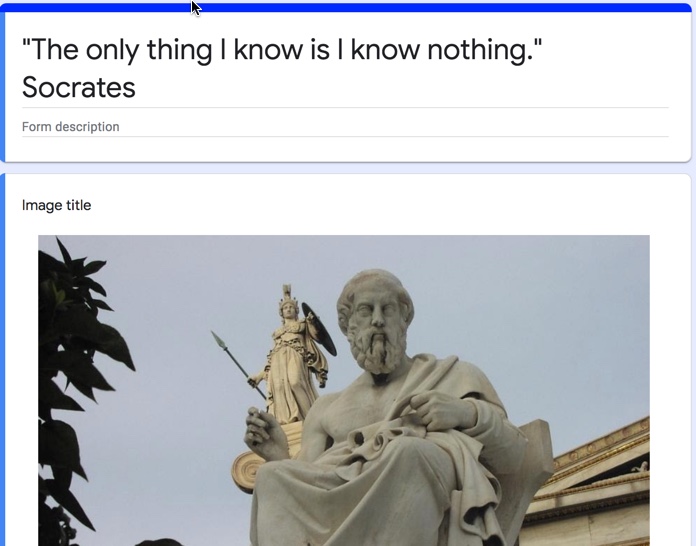The Big Idea: All students have run across “know-it-alls”. They might be one themselves. They walk into a room and express supreme confidence with their knowledge. Being humble is seen as a sign of weakness. Then there are those timid students who wait patiently, ask questions and only speak when they are certain of something. Confidence and humility are noble traits. The life-long challenge is striking the right balance between the two.
Claim: According to famous Greek philosopher Socrates, you should question what you think you know. It’s important to be humble and admit that you don’t have the answers.
Counterclaim: You should have confidence in what you know. Certainty is important.
Essential Question: Should we question what we are sure of?

COPY assignment, send to students and start the conversation!
Integration Idea: I see this essential question and conversation as a great way to begin or end a school year. At the beginning it would establish an importance to the value of being humble with what you know and being open to questioning. It would also give you a good insight into the types of students in your class who are more inquisitive versus the ones who demand certainty. At the end of the year, it would inspire the students to reflect upon the importance of questioning and what they learned. You could ask the students to write about examples in the curriculum where there were no clear answers and where it was important to keep questioning what was being learned.
“Your silence will not protect you.” Audre Lorde
“The Supreme Art of War is to Subdue the Enemy without Fighting.” Sun Tzu





